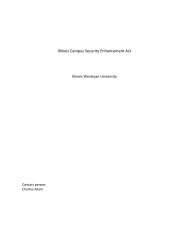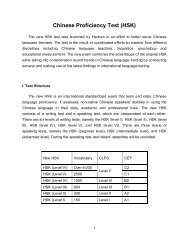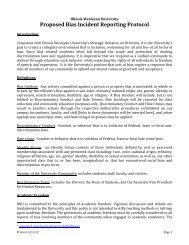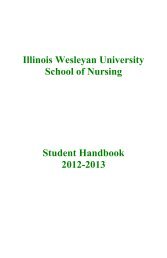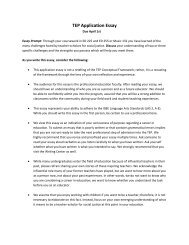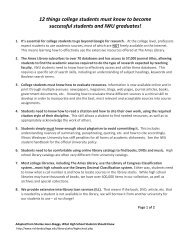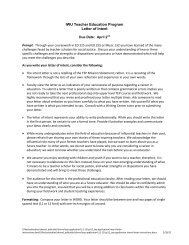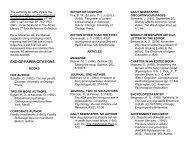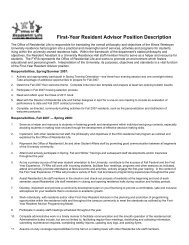Ethnic Specialization of Travel Agencies
Ethnic Specialization of Travel Agencies
Ethnic Specialization of Travel Agencies
Create successful ePaper yourself
Turn your PDF publications into a flip-book with our unique Google optimized e-Paper software.
Kons<br />
DMR 3<br />
on Graph Six. The commission level for the<br />
individual firm is c 3<br />
and the number <strong>of</strong> tickets supplied<br />
to LOT is q 3<br />
. Immediately it can be seen in Area R 2<br />
that the individual firm will make an excess pr<strong>of</strong>it in<br />
this market. The firm that attracts the business <strong>of</strong><br />
individual ethnic groups is able to acquire excess<br />
pr<strong>of</strong>its, if it utilizes the higher commission levels <strong>of</strong><br />
foreign carriers. As long as foreign carriers continue<br />
to <strong>of</strong>fer significantly higher commission levels then<br />
U.S. airlines, specialized travel agencies will make<br />
much higher pr<strong>of</strong>its then general travel agencies.<br />
These high pr<strong>of</strong>its are made as a result <strong>of</strong> very little<br />
investment required by the firms to enter the<br />
specialized travel agency market. These specialized<br />
travel agencies were able to see an opportunity in a<br />
new market and have enjoyed great success.<br />
Many travel agents wonder what the future<br />
holds for the specialized travel agency market. Since<br />
the specialized travel agency market is perfectly competitive,<br />
it is likely that more former general travel<br />
agencies will enter the market in order to receive the<br />
excess pr<strong>of</strong>its that current firms are enjoying. In perfectly<br />
competitive industries, when the firms are enjoying<br />
excess pr<strong>of</strong>it, new firms enter the market and<br />
drive prices down to the point where each firm makes<br />
a normal pr<strong>of</strong>it. However, this may not be the immediate<br />
case in the specialized travel agency market.<br />
How long specialized travel agencies make excess<br />
pr<strong>of</strong>its all depends on how fast foreign airlines adjust<br />
the commission level to the number <strong>of</strong> suppliers in the<br />
market. Changing commission levels is a long-term<br />
decision, thus in the short run commission levels remain<br />
high. In the short run, the demand curve would<br />
be essentially a straight line as shown in Graph Seven<br />
by line D 4<br />
. No matter how many travel agencies enter<br />
the market in the short run, the foreign airlines are<br />
unable to adjust their commission levels. Therefore,<br />
the entry <strong>of</strong> new firms into the market merely increases<br />
the number <strong>of</strong> tickets supplied to foreign airlines in<br />
the short run (i.e. Q 4<br />
-Q 5<br />
-Q 6<br />
). However, in the long<br />
run the foreign airlines will find that they are unable<br />
to lower commission levels to a percentage that is more<br />
equivalent to the number <strong>of</strong> firms in the market. This<br />
causes the equilibrium price to change from C 3<br />
to C 4<br />
on Graph Eight. Thus in the long run, specialized<br />
travel agencies will tend to come closer to making a<br />
normal pr<strong>of</strong>it. If the commission levels start to approach<br />
the commission levels <strong>of</strong> U.S. airlines, then<br />
firms will start to leave the travel agency industry all<br />
together. The changes that the travel market is undergoing<br />
are quite remarkable. Cost cutting maneuvers<br />
and technology is pressuring to replace the travel agent,<br />
which has forced many travel agents to find more creative<br />
ways <strong>of</strong> providing their service to travelers and<br />
operating a pr<strong>of</strong>itable business.<br />
The Park Place Economist / vol. VI



